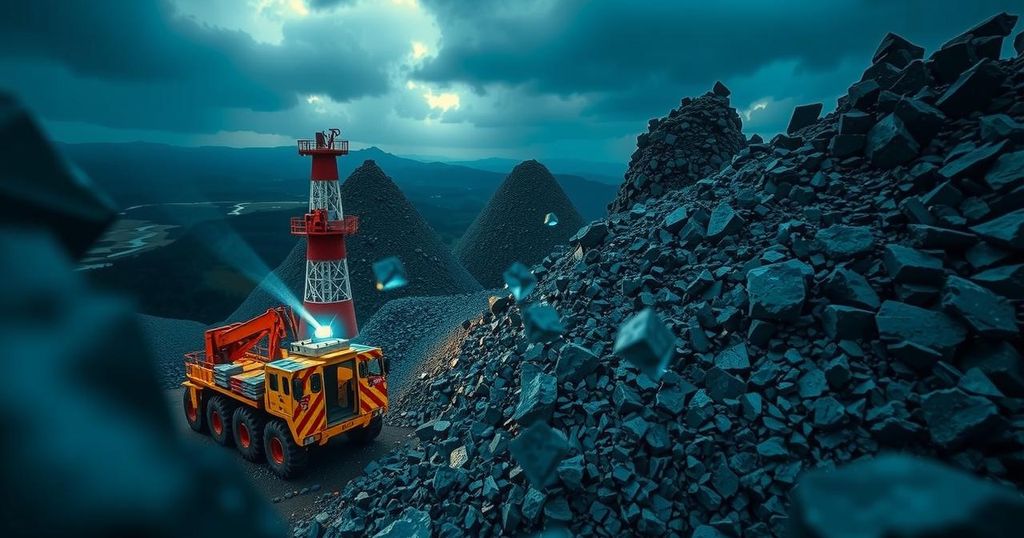The Democratic Republic of the Congo (DRC) accounts for two-thirds of the world’s cobalt, crucial for batteries in Europe’s climate transition. European policymakers face challenges with reliance on China for cobalt processing, while emphasizing ethical sourcing practices. Conversations led by Congolese leaders spotlight the need for equitable investments. Despite improved mining regulations, actual implementation remains problematic amidst continuing Chinese dominance in the region.
The Democratic Republic of the Congo (DRC) stands at the forefront of the global cobalt market, hosting approximately two-thirds of the world’s cobalt supply, critical for the production of batteries essential to energy transitions in Europe. In contrast, Europe’s reliance on Congolese cobalt is complicated by its dependence on China for processing and value addition. European Parliament member Marie-Pierre Vedrenne urges a cohesive approach among EU nations to ensure ethical sourcing, reflecting the continent’s commitment to avoiding exploitation, particularly child labor in mining.
In the DRC, miners labor under harsh conditions with minimal protection against occupational hazards. The influx of cobalt has generated varying perspectives on partnerships, as Congolese leaders like Simon Tuma Waku emphasize the need for mutual respect in negotiation and investment. Despite strides made in regulation since the 2002 mining code, European engagement remains minimal compared to China’s dominance.
Infrastructure projects such as the Lobito Corridor illustrate European efforts to bolster connections between Congolese mining regions and international markets. However, EU representatives acknowledge that true partnership hinges on foundational issues of human development and respect for African interests, recognizing that former colonial dynamics cannot dictate current relations. The DRC’s evolving mining framework faces significant challenges in implementation despite progressive legislation, and local communities monitor compliance closely.
In summary, while the DRC is pivotal to Europe’s energy transition, mutual respect and ethical engagement are paramount in navigating the complexities of this global cobalt economy. Sustained dialogue and equitable investments will shape the future of partnerships between Europe and the DRC, which is essential for a sustainable and ethical path forward in the mining sector.
The Democratic Republic of the Congo is crucial to global cobalt supply, which is vital for batteries, particularly in Europe’s climate initiatives. The nation produces a significant majority of the world’s cobalt but is primarily dependent on China for processing, creating a complex dynamic in international trade. The historical context of exploitation in the DRC informs current discussions on raw material sourcing, ethics, and investment. Recent administrative changes and laws aimed at improving sustainability in mining operations are essential to enhancing local participation and addressing inequitable trade practices.
The intricate relationship between the DRC and Europe regarding cobalt sourcing highlights a critical juncture where ethical considerations are paramount. European stakeholders must prioritize fair partnerships and sustainable practices in a sector historically marred by exploitation. Moving forward, successful collaboration will depend on acknowledging Congolese agency and addressing local grievances. As Europe intensifies its energy transition, the support for responsible mining practices and infrastructural investments in the DRC will be imperative to realizing mutual benefits.
Original Source: www.dw.com







